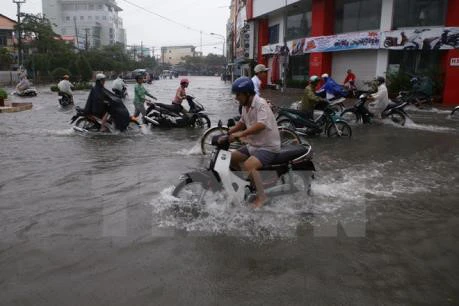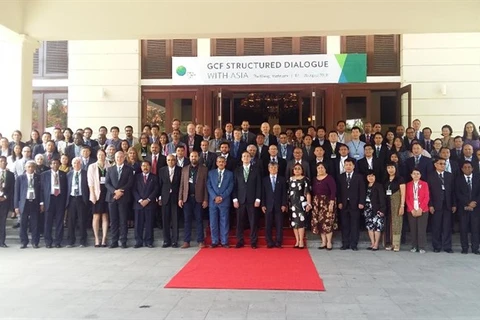Thai Binh (VNA) – The AgResults Vietnam Emissions Reduction Pilot (AVERP) awarded three agricultural technology projects verified to be most efficient in reducing greenhouse gas (GHG) emissions and increasing rice yield during a conference in Thai Binh on August 15.
The conference was co-held by the non-profit SNV Netherlands Development Organisation and the local Department of Agriculture and Rural Development in the northern province to review the spring rice crop and award winners of the project’s first phase.
The three winners received prizes worth a total of 100,000 USD. Of the amount, 50,000 USD was given to the first prize winner – FARI-SEED JSC, a member of Field Crops Research Institute.
The AgResults Vietnam Greenhouse Gas Emissions Reduction Pilot is a four-year, 8-million-USD results-based financing project that aims to test and scale up innovative technologies, tools, and approaches to reduce GHG emissions in the land cultivation and production stages for rice, while also increasing yield, reducing poverty, protecting the environment, and combating the effects of climate change.
The AVERP project is conducted in two phases in the Red River Delta’s Thai Binh province. The first phase of the project took place over two rice crops, during which selected organisations tested their technologies. Six out of 11 competing organisations were selected to go through to the second phase.
The project’s Phase II will begin in spring 2019 and consists of four consecutive crops, during which organisations will scale their proven technology to reach the greatest number of smallholder farmers. Participating organisations will be paid based on their results achieved in both phases.
Its objectives are to reach 75,000 farm households in Thai Binh, reduce 375,000 tonnes of CO2 emissions, and save about 15 percent of costs for smallholder farmers due to lower input use. –VNA
VNA























